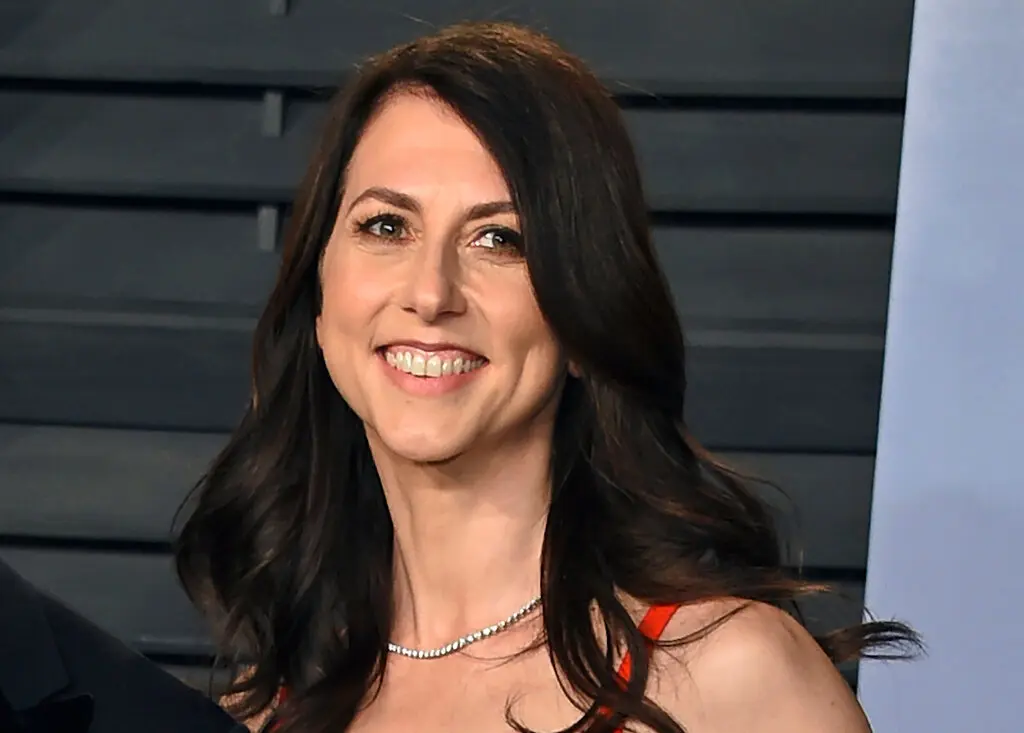MacKenzie Scott, a name that has become synonymous with transformative philanthropy, is much more than just one of the wealthiest women in the world. Her story is one of empowerment, vision, and generosity that stands in stark contrast to the traditional paths followed by many billionaires. While Scott’s early years were shaped by her marriage to Amazon founder Jeff Bezos, her more recent years have been defined by her unparalleled commitment to giving away her vast fortune quickly and quietly, reshaping the way the world views wealth, philanthropy, and social responsibility.
Early Life and Education
Born MacKenzie Tuttle in 1970, Scott grew up in San Francisco, California. From a young age, she showed an inclination towards writing, a passion that would later become a driving force in her life. She attended the Hotchkiss School in Connecticut and then went on to study at Princeton University, where she graduated with a bachelor’s degree in English in 1992. At Princeton, Scott was fortunate enough to study under Nobel Prize-winning author Toni Morrison, who recognized her talent and described Scott as “one of the best students” she’d ever had.
This period was instrumental in shaping Scott’s worldview and instilled in her a sense of purpose that she would carry into her professional and personal life. Writing wasn’t just a hobby for Scott; it was a tool for exploring the human condition, a way of understanding the complexities of life and relationships.
Marriage to Jeff Bezos and Amazon’s Early Days
In 1993, MacKenzie married Jeff Bezos, who, at the time, was working at the hedge fund D.E. Shaw. Shortly after their wedding, the couple moved to Seattle, where Bezos started what would become Amazon in the garage of their rented home. As Bezos embarked on building Amazon, MacKenzie played a pivotal role, helping with everything from early business operations to bookkeeping. Despite her involvement in the early stages of Amazon, Scott remained largely out of the public eye.
For many years, Scott’s identity was tightly interwoven with Bezos, but she quietly pursued her own passions, including writing. In 2005, she published her debut novel, The Testing of Luther Albright, which won the American Book Award. Her second novel, Traps, followed in 2013. While her writing career demonstrated her literary talent, it was her next chapter—her role as a philanthropist—that would truly redefine her legacy.
Divorce and the Birth of a New Chapter
In January 2019, Scott and Bezos announced their divorce after 25 years of marriage. The split was amicable, and Scott received 25% of the couple’s Amazon stock, which at the time was worth approximately $36 billion. The divorce thrust Scott into the spotlight, as she became one of the wealthiest women in the world overnight. But instead of focusing on her newfound wealth, Scott made it clear that her focus was on something far more meaningful: giving back.
Just a few months after her divorce, Scott signed the Giving Pledge, a commitment made by some of the world’s wealthiest individuals to give away the majority of their wealth during their lifetime or in their wills. In her letter to the Giving Pledge, Scott wrote: “I have a disproportionate amount of money to share. My approach to philanthropy will continue to be thoughtful. It will take time, effort, and care. But I won’t wait. And I will keep at it until the safe is empty.”
This marked the beginning of what would become one of the most impactful and unorthodox approaches to philanthropy ever seen.
Transformative Philanthropy
MacKenzie Scott’s approach to philanthropy is revolutionary not only in its scale but also in its speed and style. Unlike many wealthy donors who create foundations or earmark funds for specific causes, Scott has chosen to give her wealth away directly, with no strings attached, and in record time. In just over two years, Scott has donated more than $14 billion to a wide variety of organizations, making her one of the most generous philanthropists in history.
What sets Scott’s giving apart is her hands-off approach. She gives large sums—often tens or hundreds of millions of dollars—to organizations without dictating how the money should be spent. This trust-based philanthropy is rare in the world of large-scale giving, where donations often come with strict conditions or requirements. Scott’s belief is that the people leading these organizations know best how to allocate the funds, and she has expressed confidence in their ability to make meaningful change.
Her giving is also notable for its focus on causes that have traditionally been overlooked or underfunded. Scott has directed a significant portion of her wealth to racial justice initiatives, women’s rights organizations, LGBTQ+ groups, and other social justice causes. She has made it a point to fund small and medium-sized organizations, particularly those led by people of color, recognizing that these groups often lack the resources that larger, more established nonprofits receive.
A Quiet Leader in Philanthropy
In an age where billionaires often attach their names to massive charitable initiatives and seek public recognition for their generosity, MacKenzie Scott has taken the opposite approach. She has given away billions of dollars with little fanfare, declining interviews and media appearances. Her only public announcements have come through posts on the website Medium, where she provides updates on her giving and explains her philosophy of philanthropy.
In her posts, Scott has emphasized the importance of tackling systemic inequality and supporting marginalized communities. She has also called attention to the need for redistribution of wealth and the responsibility of the ultra-wealthy to give back. Her tone is humble, and her focus is always on the recipients of her donations, not on herself.
Scott’s decision to remain largely in the background is a stark contrast to the high-profile philanthropy of other billionaires, and it speaks to her desire to make a genuine impact without seeking personal accolades. Her actions demonstrate a deep understanding of the power dynamics inherent in philanthropy and a commitment to using her wealth to address those imbalances.
Legacy and Impact
MacKenzie Scott’s philanthropic efforts are already reshaping the landscape of charitable giving. Her trust-based approach and focus on social justice are setting a new standard for how wealth can be used to effect real change. As more and more of her wealth is distributed to those in need, Scott is proving that one person can make an extraordinary difference in the lives of millions.
In just a few short years, MacKenzie Scott has become one of the most influential philanthropists in the world, not because of her wealth, but because of the way she chooses to use it. Her quiet, thoughtful approach to giving is a powerful reminder that true generosity comes not from the amount of money given, but from the intent behind it. By focusing on those who are most in need and trusting them to create change, Scott is leaving a legacy that will endure long after her wealth is gone.











